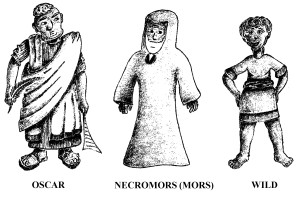It’s always a good idea to know where, how, and for what purpose one’s tax dollars are being spent. The BRAIN Initiative (Brain Research through Advancing Innovative Neurotechnologies) is no exception. At its core, it is an attempt to understand how the brain works and is somewhat analogous to the Human Genome Project. The expectation is that this endeavor will lead to ways to treat, prevent, and cure brain disorders, brain injuries, and a host of other maladies.
In the first year of funding since the project was announced last April, the Defense Advanced Research Projects Agency (DARPA), the National Institute of Health (NIH), and the National Science Foundation (NSF) are to invest approximately $50 million, $40 million, and $20 million, respectively, to facilitate these aims. From the private sector, the Allen Institute for Brain Science ($60 million annually), the Howard Hughes Medical Institute ($30 million annually), the Kavli Foundation ($4 million annually for ten years), and the Salk Institute for Biological Studies ($28 million) have also joined this effort.
It would seem that even frugality has its price these days, and nobody wants to come off looking cheap. Hopefully they get it right and don’t contradict one another; otherwise it might set neuroscience back quite a ways, at least in that most unforgiving of eyes, the public.
In some respects, I almost feel like a kid with a new toy to show off, though on a much smaller scale. There is, of course, quite a bit of work left to do… I would not want that toy to suddenly get a case of stage fright and malfunction.
Aside from patiently waiting for my query letters to be lifted from their slush piles – my gemstones cast in the mud – there is always the fun task of editing, always. Some other updates to the site include an RSS feed to some notable psychology articles (i.e. potential deconstruction fodder), social media links, and a follow button.
For those interested, a more comprehensive description of the BRAIN Initiative can be found at the following pages:



